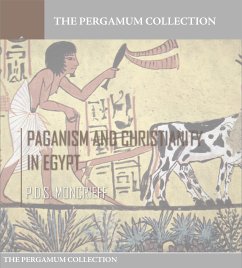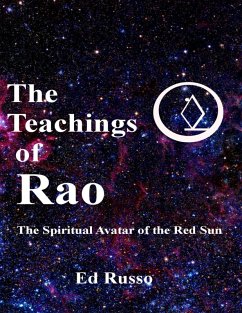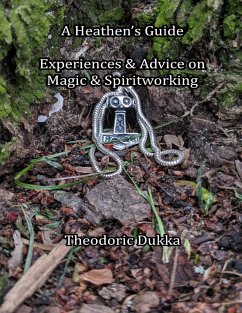
Paganism Surviving in Christianity (eBook, ePUB)

PAYBACK Punkte
0 °P sammeln!
In "Paganism Surviving in Christianity," Abram Herbert Lewis meticulously explores the enduring influences of ancient pagan practices and beliefs within the framework of modern Christianity. Written with a keen eye for historical detail and cultural nuance, Lewis employs a blend of rigorous scholarship and accessible prose, making complex theological concepts approachable for both academic and lay audiences. Throughout the text, he deftly navigates the intersections of mythology, ritual, and doctrine, revealing how elements of pagan traditions have subtly woven themselves into Christian practi...
In "Paganism Surviving in Christianity," Abram Herbert Lewis meticulously explores the enduring influences of ancient pagan practices and beliefs within the framework of modern Christianity. Written with a keen eye for historical detail and cultural nuance, Lewis employs a blend of rigorous scholarship and accessible prose, making complex theological concepts approachable for both academic and lay audiences. Throughout the text, he deftly navigates the intersections of mythology, ritual, and doctrine, revealing how elements of pagan traditions have subtly woven themselves into Christian practices and celebrations, challenging the notion of Christianity as a wholly distinct faith. Abram Herbert Lewis, a scholar steeped in religious studies, draws upon his extensive background in theology and anthropology to illuminate these intricate connections. His prior works reflect a deep interest in the evolution of religious thought and the syncretic nature of belief systems. Lewis's academic journey likely stems from a personal fascination with how historical narratives shape contemporary spirituality, prompting him to probe the hidden layers of influence that paganism has exerted over Christian traditions. This book is a must-read for anyone interested in the complexities of religious identity and the interplay between ancient and modern beliefs. Lewis's insightful analysis invites readers to reconsider the origins of their own faith practices while fostering a deeper understanding of the rich tapestry of cultural heritage that shapes contemporary spirituality.
Dieser Download kann aus rechtlichen Gründen nur mit Rechnungsadresse in A, B, BG, CY, CZ, D, DK, EW, E, FIN, F, GR, H, IRL, I, LT, L, LR, M, NL, PL, P, R, S, SLO, SK ausgeliefert werden.













